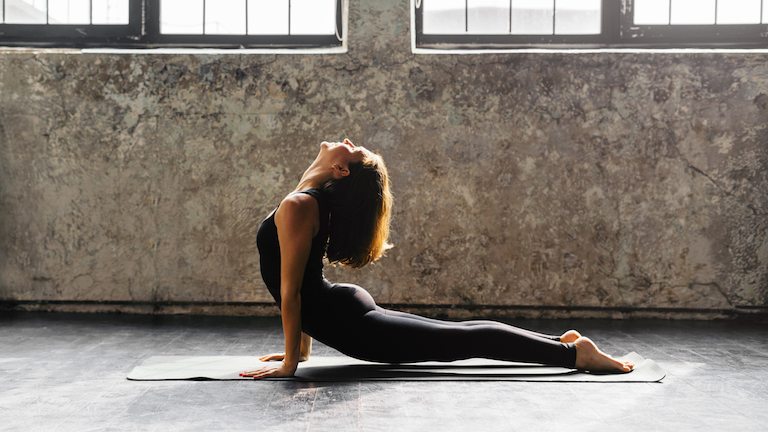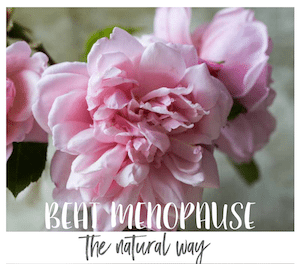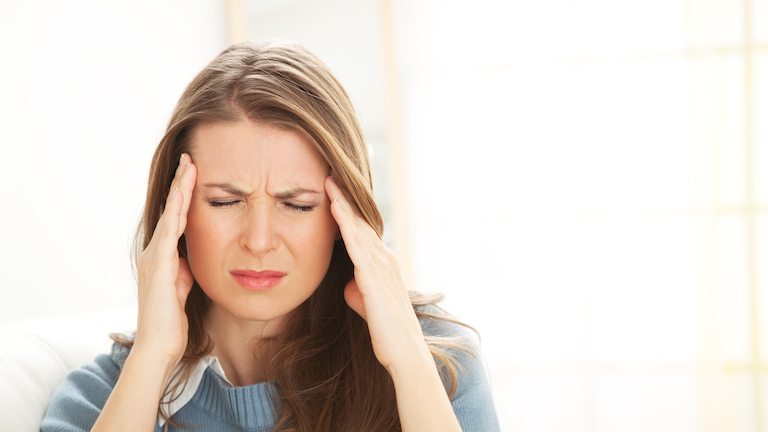This week, along with BBC Radio Women’s Hour, we’re focusing on menopause. Here, we bring you natural fixes that can help from menopause expert Maryon Stewart, author of new book Beat Menopause The Natural Way.
Menopause is a natural part of ageing, and usually happens when a woman is between the age of 45 and 55. In the UK, the average age for a woman to go through menopause is 51. Most women will experience symptoms of menopause for up to five years before they have their last period. However, around one in every ten women experience symptoms for up to ten years, so it’s important to know how we can deal with them naturally. I have been helping menopausal women for two decades and written 26 books on natural health and menopause. Here are my tips for dealing with common menopausal symptoms without drugs…
1. Hot flushes
Hot flushes are the sudden feelings of heat, usually in the face, neck and chest, which can make your skin red and sweaty. You may be lucky enough to escape hot flushes. However, more than 80% of women are thought to be affected by hot flushes at some point. They can often start long before your periods stop and can continue for several years afterwards.
There are several things you can do to help ease your hot flushes. The moment you feel a flush coming on, stop what you’re doing. Take several slow, deep breaths and try to relax. This helps reduce the severity of the attack. If possible, drink a glass of cold water and wear layers of thin clothes that you can easily strip off when you feel yourself getting hot. Eat small, regular meals as the heat generated by the process of digesting a large meal can sometimes bring on a flush. Finally, quit smoking! Research shows it increases the risk of hot flushes.
2. Insomnia

Sleepless nights are a common symptom that most women experience during menopause. Avoid coffee, alcohol, and other stimulants and replace them with calming herbal tea such as chamomile tea, valerian tea or a hot soya milk drink. A couple of hours before going to bed you should also avoid technology, watching or listening to anything too stimulating in the evening, as it may keep you awake. If you do keep getting up during the night, take the herb valerian to help you get back to sleep until your insomnia becomes under control.
Surviving on as little as two hours of sleep a night can have a profound impact on anyone’s mood, irritability, anxiousness and concentration, so it’s really important you address these issues as soon as you can.
TRY: Healthista Night Food £18.95 which contains high grade natural camomile, L-theanine and passiflora to help calm the nervous system before bed.
3. Night sweats
Night sweats are hot flushes that occur at night, and repeated nights interrupted by overpowering sweats leave you feeling overwhelmingly tired and lacking energy. Tackle night sweats by keeping your bedroom cool at night with a fan, wet wipes and a cold drink by your bed. Also using cotton sheets, pillowcases and pyjamas can help keep you cool. Finally, caffeine, alcohol and spicy food, all make hot flushes and night sweats worse so try eliminating these from your lifestyle.
4. Vaginal dryness
53 per cent of women experience vaginal dryness during menopause and this can reduce libido and ultimately wreck your sex life. Top up on naturally occurring oestrogen and consider taking sea buckthorn oil, Vitamin E, zinc, magnesium and Omega 7 capsules to help alleviate vaginal dryness and discomfort. Also regular sex can help vaginal lubrication, as can spending plenty of time on foreplay, since it can take longer to become aroused.
TRY: Nature’s Aid Omega 7 Sea Buckthorn Oil £16.95, Pharmanord Bio-E-Vitamin £16.95 and Biocare Magnesium Taurate £15.95 all from Healthista Shop.
5. Painful sex
During menopause, sex for most women not only becomes uncomfortable, but in some cases it can be too painful to contemplate. The main step you need to take to fix this is to start supplying your body with naturally occurring oestrogen through your diet consuming soya products and flaxseeds regularly and a daily supplement of Nature’s Aid Omega 7 (£16.95 from Healthista Shop), made from the Sea Buckthorn plant, so that your body continues to produce the cells that produce lubrication and resilient tissues allowing you to resume a comfortable sexual relationship with a big smile on your face.
6. Headaches
Headaches and migraines are common during menopause and may be the result of changing body temperature, tiredness due to hot flushes, sleeplessness or general stress and anxiety. Try and incorporate ginger into your diet as is a known as a relaxant and has anti-inflammatory properties.
Eat well, avoid caffeine, and take multi vitamins and minerals and additional magnesium.
If you often wake up with a morning headache, try eating a wholesome snack before you go to bed as it can help keep blood sugar levels balanced. Crackers with some nut butter and tomato is a great option or half a banana with a little plain yoghurt. Regular exercise, massage and meditation can also help ease headaches during menopause.
TRY: Pukka Three Ginger Tea £2.49, Dr Karg’s Classic 3 seed crsipbread £2.49, Whole Earth Peanut pecan Walnut Butter £3.29
7. Dry skin
Many women notice their skin becoming drier around the time of menopause. The secret to dealing with this lies in your skincare regime and topping up on naturally occurring oestrogen. Regularly exfoliate your skin and add a rich chemical free moisturizing cream to you daily moisturizing routine. It’s also important to protect your skin from the sun’s damaging rays by applying sunscreen with an SPF of at least 15 on your face, neck and hands.
You should also keep your skin hydrated by drinking at least eight glasses of water everyday, and eat plenty of oily fish, such as salmon and sardines. These are rich in omega-3 fats, which will help keep skin soft and smooth.
8. Aching joints
Lack of oestrogen and essential nutrients at the time of menopause can result in creaking bones and aching joints, especially first thing in the morning. However, I’ve met a lot of women who experience far less aches and pains if they meet the health targets of five fruit and vegetables a day, two servings of oily fish a week, regular exercise, no smoking and no more than 14 units of alcohol a week. Checking your levels of Vitamin D and correcting deficiencies may also help to ease aches and pains as well as improve bladder function.
TRY: Nature’s Aid Vitamin D3 £9.95
9. Mood swings / Depression
Depression, irritability and anxiety are common menopausal symptoms. You may find yourself weeping for no obvious reason, or panicky at the thought of taking on something that you would normally do without a second thought. These feelings will pass; it may just take some time.
My number one tip is to talk about how you feel – talk to your friends, family and even your partner.
You should also find a form of relaxation technique that works for you such as; mindfulness, meditation, yoga or simply watching your favourite movie. Also, it’s important to follow a diet rich in phytoestrogen and exercise regularly. Avoid processed foods and include plenty of greens, nuts, seeds and berries in your diet. You can also consider taking B complex, vitamin C and fish oil supplements.
TRY: Nature’s Own Vitamin B Complex + Vitamin C £16.60, Pharma Nord Bio-Fish Oil £12.95

10. Fatigue
Finally, going through all the symptoms mentioned above can be exhausting, so it’s no surprise that during menopause many women may experience an ongoing and persistent lack of energy and feelings of tiredness and weakness. To combat fatigue make sure you include nuts, seeds, oily fish, fruit, vegetables and salad as part of your regular diet. Consume plenty of protein and consider taking magnesium, a multivitamin and mineral supplement and vitamins D and C. I know sleepless nights are common, so don’t feel guilty about resting, relaxing and napping whenever you can. Doing a formal session of relaxation for 20 minutes each day has been shown to reduce hot flushes and night sweats by up to sixty percent.

Learn more about ways to treat symptoms of menopause in Maryon Stewart’s book, Beat Menopause The Natural Way. About the Author: Maryon Stewart is an author of 27 books on women’s health, PMS and menopause. She runs regular free online masterclasses to help women manage menopause. To find more information and masterclass dates, visit www.maryonstewart.com
Read More:
I tried a menstrual cup and this is what happened
3 diet changes that help depression
From heavy bleeding to no periods – 3 menstrual problems and EXACTLY what your GP should do
What your period says about your health
Like this article? Sign up to our newsletter to get more articles like this delivered straight to your inbox.



















































